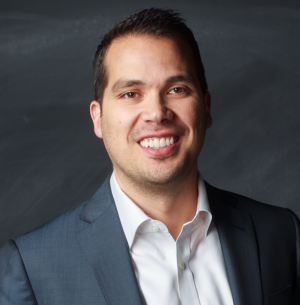
Gregory Peck as Atticus Finch in ‘To Kill A Mockingbird’
The tragic, inexcusable death of George Floyd in Minneapolis has sparked protests, community building, and dialogue. It’s also restarted a national conversation about systemic racism. While rooted in terrible loss, these past few weeks seem to be leading to a long-overdue awakening in parts of the public.
I’ve been heartened to see how many businesses have been out front and vocal in their support of racial equality in the wake of George Floyd’s death. Millions have been donated to a wide variety of causes that support social and racial justice. Only a month ago, tagging a corporate post #BLM would have been “too controversial” for most PR departments to sign off on. Now, billion-dollar companies, CEOs, and leaders on both sides of the aisle are issuing press releases, making statements, and filling our Twitter feeds with full-throated endorsements of the Black Lives Matter movement. Even Roger Goodell, the NFL commissioner who previously sided against Colin Kaepernick and banned his players from taking a knee in protest of a society they see as largely stacked against black people, has admitted publicly that Black Lives Matter.

Ready for What’s Next: 5 Ways to Strengthen Economic Resilience
Get five practical tips to spot cash flow red flags early, speed up payments, track spending in real time, and build stronger client trust through clear, transparent billing—download the ebook.
Why Is This So Hard For Biglaw To Say?
Yet, for all the many national companies and voices pledging to listen and act better, our own segment of the market remains quiet. Above The Law has been tracking and compiling the statements and actions of Biglaw firms in support of racial equality. As of this writing, they’ve compiled around 60 statements, many coupled with concrete pledges of action or resources.
While 60 Biglaw allies are better than none, it still means roughly 70% of the Am Law 200 has evidently remained publicly silent in this moment — not even acknowledging what’s happening in the country or speaking out against racism.
Law firms get a lot of flak for being behind the curve. We’ve historically lagged on issues like technology adoption, management practice, embracing distributed workplaces, and other topics where the price of falling behind isn’t ultimately that huge. We leave money on the table and cede market share to our competitors at our peril, but that’s one of the challenges of an industry centered around people trained in risk aversion and issue spotting. Lawyers tend to have a professionally instilled preference for stability and calm.

How Filevine’s New DraftAI Cuts Out Hours Of Writing Work
Now it transforms your document creation with natural language prompts.
But on the topic of racism, we have no excuse for remaining behind the times. Justice is literally our business. We are too well trained in reviewing evidence and weighing equities not to see what is right in front of us. We swear an oath to serve justice as a condition of our admission to the bar. This kind of issue is right in our wheelhouse. We have no excuse to not be on the cutting edge.
The fear, of course, is that taking a side on an issue can be bad for business. Like it or not, Biglaw serves powerful, wealthy clients, some of whom may have differing views on the issues the country is facing. A diminishing — but still distressing — percentage of Americans remain steadfastly opposed to acknowledging systemic oppression or discrimination. For fear of driving away that business, of losing some of our livelihood, many choose to remain silent.
But how can we be advocates for justice and not speak out?
Our Profession’s Mutual Client
The story of Atticus Finch is built into the foundation of American lawyerdom. To Kill A Mockingbird, both the 1960 novel and the 1962 film, contain some of the most heroic depictions of the American attorney in literature or film. In it, Finch argues eloquently and compassionately for a higher form of justice than his small Southern town is ultimately willing to give. Though he unjustly loses the case, his integrity and fair-mindedness have been an inspiration to legions of real-life attorneys who have cited him as the model for their own careers.
What’s often forgotten in the story of Atticus Finch, however, is the man he defended. Tom Robinson, a black man, is wrongfully convicted of raping a white woman. Overt racial overtones permeate the book’s pages. Fast forward to today, and we can see that the plea to end systemic oppression referred to as the Black Lives Matter movement is not new. Black Americans have been screaming for justice for generations. Lawyers, more than most, have a responsibility to listen to and amplify those voices. We need to live up to our own founding myth.
For my part and that of many industry colleagues, we unequivocally agree that Black Lives Matter. This statement is not about supporting the agenda of any particular organization, calls to defund law enforcement, or anything of the sort. Instead, it’s a broader call to racial equality in all of society. It’s about being better, listening to the voices and stories of those affected by racism and inequality, and taking whatever steps forward we can toward a more just world. To those of my profession who have yet to speak out about racism and the need to improve diversity and inclusion, it’s not too late. Our industry, our communities, and our country need your help.

James Goodnow
James Goodnow is an attorney, commentator, and Above the Law columnist. He is a graduate of Harvard Law School and is the managing partner of NLJ 250 firm Fennemore Craig. He is the co-author of Motivating Millennials, which hit number one on Amazon in the business management new release category. You can connect with James on Twitter (@JamesGoodnow) or by emailing him at [email protected].